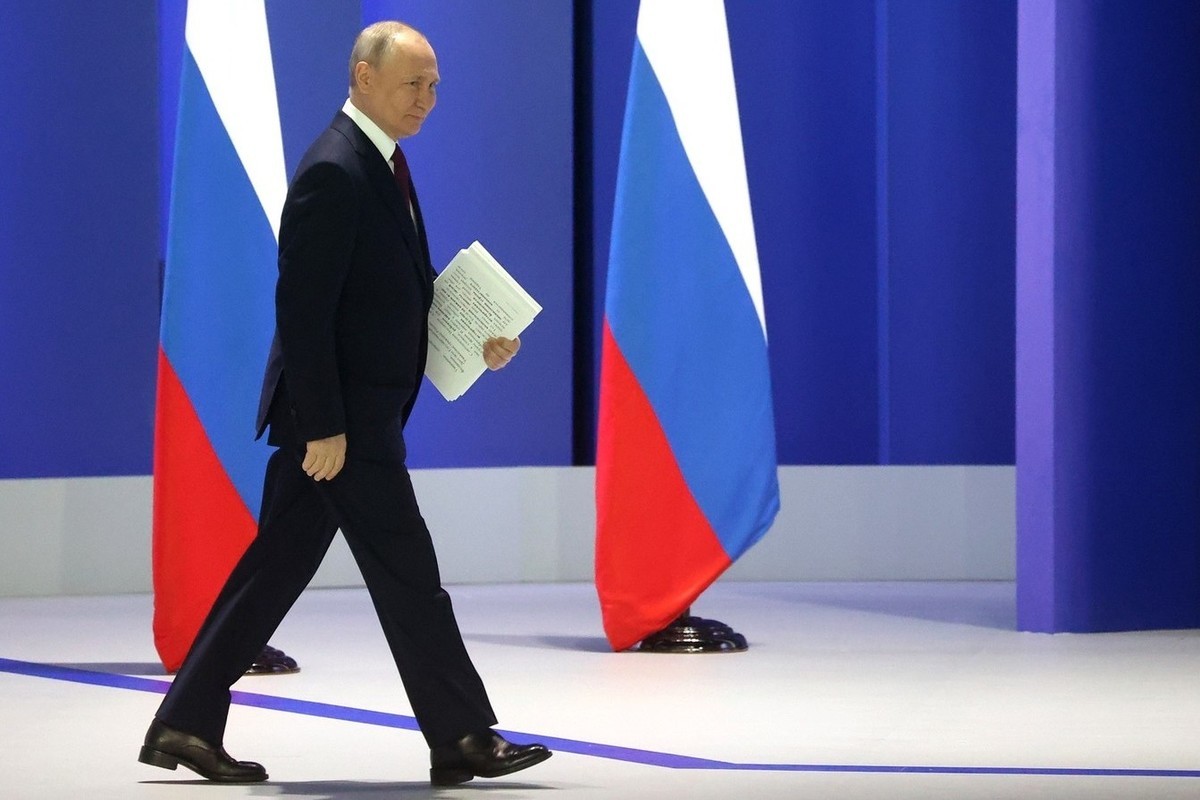Gifts from Putin: what social innovations may be contained in the president’s message
[ad_1]

Categories of Russians for whom additional financial support measures may be taken have been named
On February 29, President Putin will deliver an Address to the Federal Assembly. This happens every year, but the peculiarity of the upcoming speech is that it will take place literally two weeks before the election of the head of state. It just so happens in our country that on the eve of important political elections, the electorate expects “gifts” from the authorities. Moreover, the current head of state is also a candidate for a new term. In short, many Russians deep down hope for pleasant surprises from the authorities. Maybe someone’s income will unexpectedly increase, the tax burden will decrease, or some kind of lump sum payment will “fall” on their bank card. But how justified are such hopes from a financial point of view? After all, as we know, our budget has been in deficit for the last two years, and although the “hole” in it is shrinking, expenses still noticeably exceed income.
By and large, the people expect a lot from the authorities. Families with children are already accustomed to some social steps in their direction. The poor and disabled are counting on increased assistance from the state. Working veterans hope for indexation of pensions – it has been frozen since 2016…
There are not enough fingers on two hands to list the “wants” of Russians, which they address to the head of state. But man proposes, and the government disposes. The budget remains deficit, and it is unlikely that additional funds can be scraped together to make even relatively small sections of the population happy.
Some economists have already spoken out in the spirit that the measures already taken to support our fellow citizens this year are a real gift. In particular, pensions for unemployed people were indexed by 7.5%, the minimum wage increased by 18.5%, benefits for children and maternity capital increased significantly… More than 10 trillion rubles will be spent on the implementation of the social package from the budget in 2024. And yet, the question remains relevant: should Russians expect new “carrots” from Putin’s message? MK turned to experts for an answer
Pavel Kudyukin, former Deputy Minister of Labor of the Russian Federation, member of the Council of the Confederation of Labor of Russia:
“I do not exclude that in the coming days the authorities may increase the amount of benefits for children, introduce some additional payments or indexation. This topic is the main one for people today; it is widely known. This is quite likely and similar steps are often taken before elections. I think that Vladimir Putin may well say this in his message. Instruct the government to prepare relevant documents. The Cabinet of Ministers is able to fulfill such an order quickly enough. Students and graduate students are especially looking forward to the increase in scholarships. For them, such a decision by the head of state would be very welcome. In general, the message, in my opinion, will contain something similar.”
Andrey Loboda, economist, director of communications at BitRiver:
“It would probably be fair, without putting it off until later, to raise the pay for Russian military personnel. The situation is even more acute in regions with a sharp decline in population: the Urals, Siberia, Non-Black Earth Region… It seems to me that the population there should receive support in the very near future. It could at least consist of increasing wages in the fields of education, medicine and science. So that specialists in search of happiness do not leave their homes for other Russian regions.
And for the future, a return to the policy of a strong ruble would be a great gift for all Russians. This would have a significant social and economic effect. A weak national currency accelerates prices and, as we see, lending rates to households and businesses. Inflation has become a kind of tax on the poor. One of the interesting topics would be stimulating housing construction and reducing the population’s dependence on mortgage bondage. Such steps will help solve the problem of the demographic crisis – after all, many children are born in private homes. And not in big cities in small apartments, which young families have to pay for for decades.
The benefits of economic activity must reach people, not just participants in financial and other markets.”
Alexander Safonov, professor at the Financial University under the Government of the Russian Federation:
“I believe that before the presidential elections, a “golden shower” is unlikely to fall on the Russians. Even without this, a significant portion of federal and regional budget revenues this year is allocated to social policy. All expenses are indicated in the budget, approved by law and they are already being made. I mean the indexation of pensions for non-workers, increasing the minimum wage above the inflation rate and other aspects of the social plan. Money for new measures of this kind is unlikely to fall from heaven.
Of course, there are still a large number of low-income citizens in the country, and they count on additional financial assistance from the state. But I wouldn’t really hope for it. The expenditure part of the budget has already been approved and is being implemented, but the government does not have any “extra” money. As for the general vector of social policy, Vladimir Putin has already outlined the main priorities. This is demographics, support for large families. The first thing that will be implemented is the extension of the family mortgage. This is extremely important! And the second problem is labor resources, the development of a mechanism that would allow people with disabilities and the older generation to be attracted to the labor market. I am sure that the system of social support for the population will develop in these two main areas.”
[ad_2]
Source link






